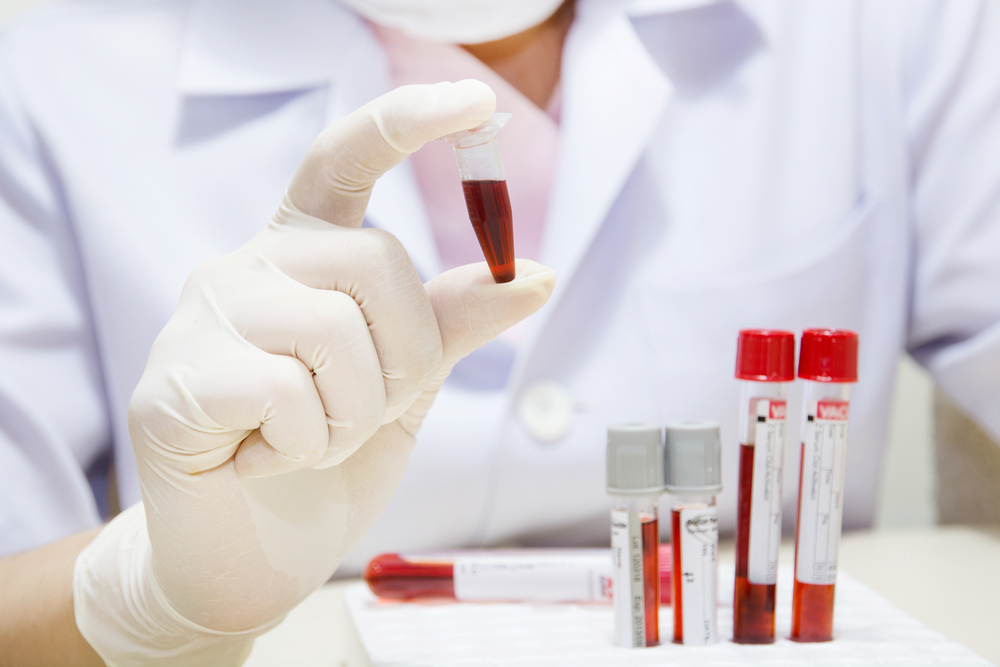Procalcitonin Blood Levels May Help Detect Lung Cancer in IPF Patients, Study Suggests
Written by |

Procalcitonin, a precursor of the calcitonin hormone, may be used as a potential biomarker of lung cancer developing in people with idiopathic pulmonary fibrosis (IPF), a recent study suggests.
Compared with patients with IPF alone, procalcitonin was significantly higher in IPF patients who also had lung cancer, particularly in those whose lung cancer originated from hormone-producing cells, the study found.
The study “Serum Procalcitonin in Patients With Combined Lung Cancer and Idiopathic Pulmonary Fibrosis” was published in the journal Cureus.
IPF is known to be associated with an increased incidence of lung cancer, with an estimated incidence of 4.8–48.0%, compared with less than 0.1% in the general population.
In prior studies, procalcitonin has been established as a helpful biomarker to detect lung cancer and predict its progression. This precursor hormone is produced mainly by Kupffer cells, specialized immune cells in the liver, and neuroendocrine (hormone-producing) cells.
However, no studies have addressed whether procalcitonin also can predict lung cancer development in people with IPF.
To evaluate procalcitonin blood levels as a relevant biomarker for lung cancer in IPF patients, researchers at the Assiut University Hospital, in Egypt, investigated samples from 137 IPF patients followed at their hospital from 2014 to 2019.
A total of 38 patients had IPF and lung cancer, corresponding to a lung cancer prevalence of 27.7%; the remaining 82 patients had IPF alone. Among the cancer patients, 26.7% were diagnosed with primary lung cancer at the same time as the IPF; the remaining 73.3% developed lung cancer a mean of 18.6 months after their IPF diagnosis.
Also, most patients had cancer that spread outside the lungs (70%), with 40% of them showing cancer in other parts of the body.
The lung cancer group included significantly more women, more past smokers, a greater incidence of hypertension, more inflammation, and worse lung function overall.
Overall, procalcitonin was significantly higher in lung cancer patients (3.58 nanograms per milliliter, or ng/ml) than in those with IPF only (0.52 ng/ml).
In a first statistical analysis, researchers found that high procalcitonin levels in lung cancer patients were associated significantly with more advanced disease, more than two metastatic sites, and neuroendocrine features — whose cells have traits similar to those of nerve cells and hormone-producing cells.
However, a further analysis taking into account several confounding factors, such as sex, and inflammation levels, found that only the presence of neuroendocrine features was associated significantly with high procalcitonin positivity.
“The findings of the current study indicate that patients with combined IPF and lung cancer have higher serum procalcitonin levels than those with IPF alone,” the researchers wrote.
“These high PCT [procalcitonin] levels should be taken into consideration upon follow-up of IPF patients for the development of LC [lung cancer],” they concluded.






